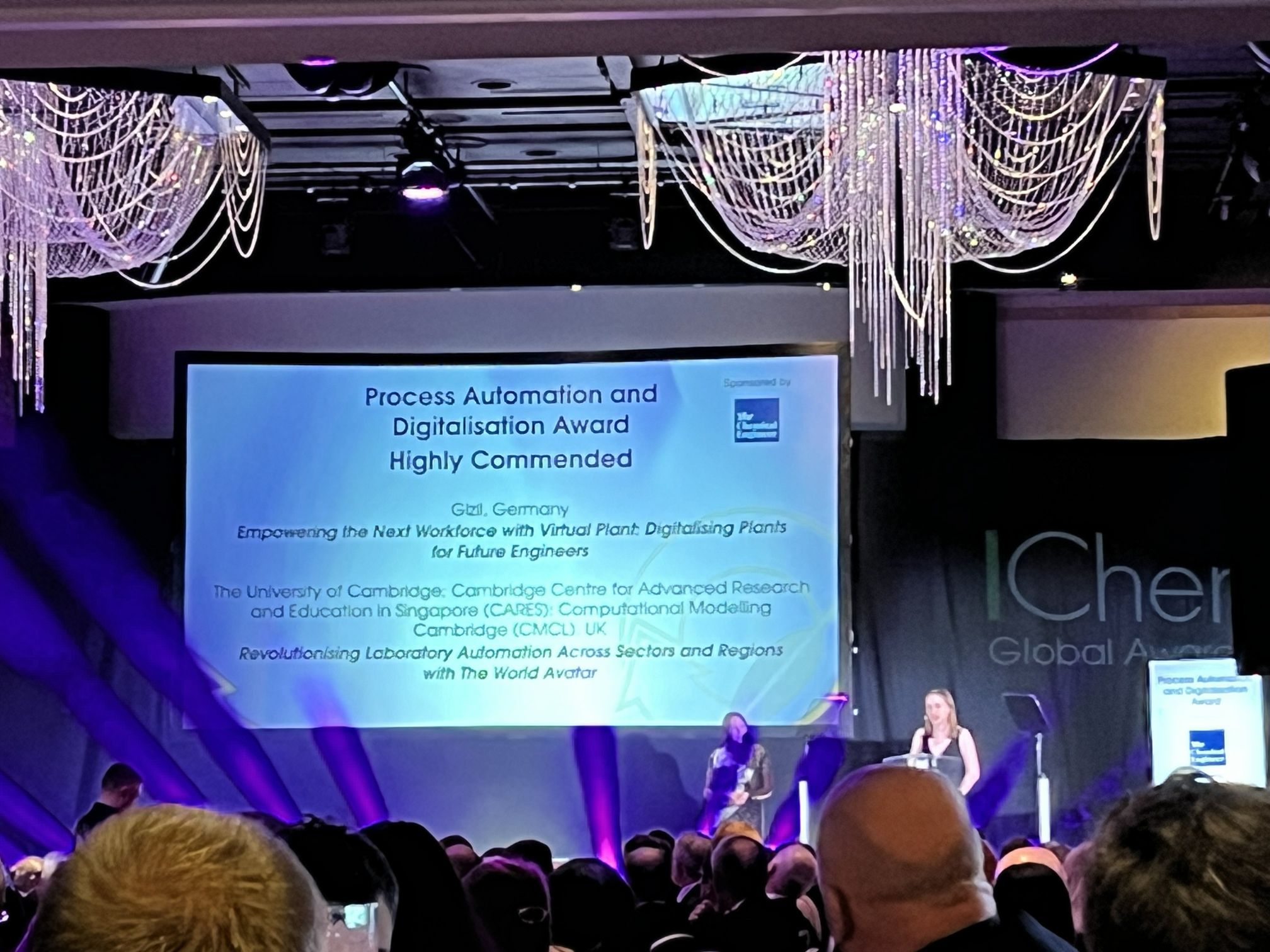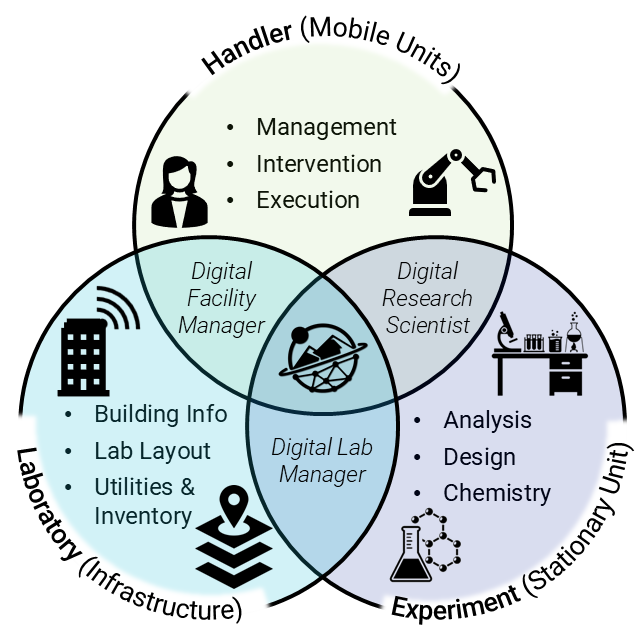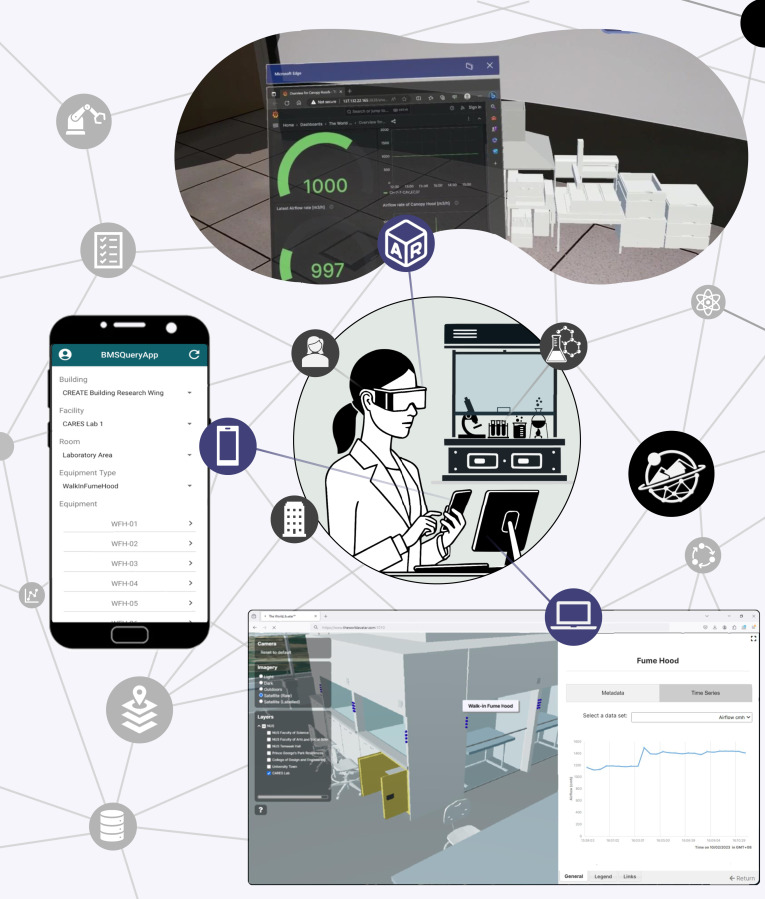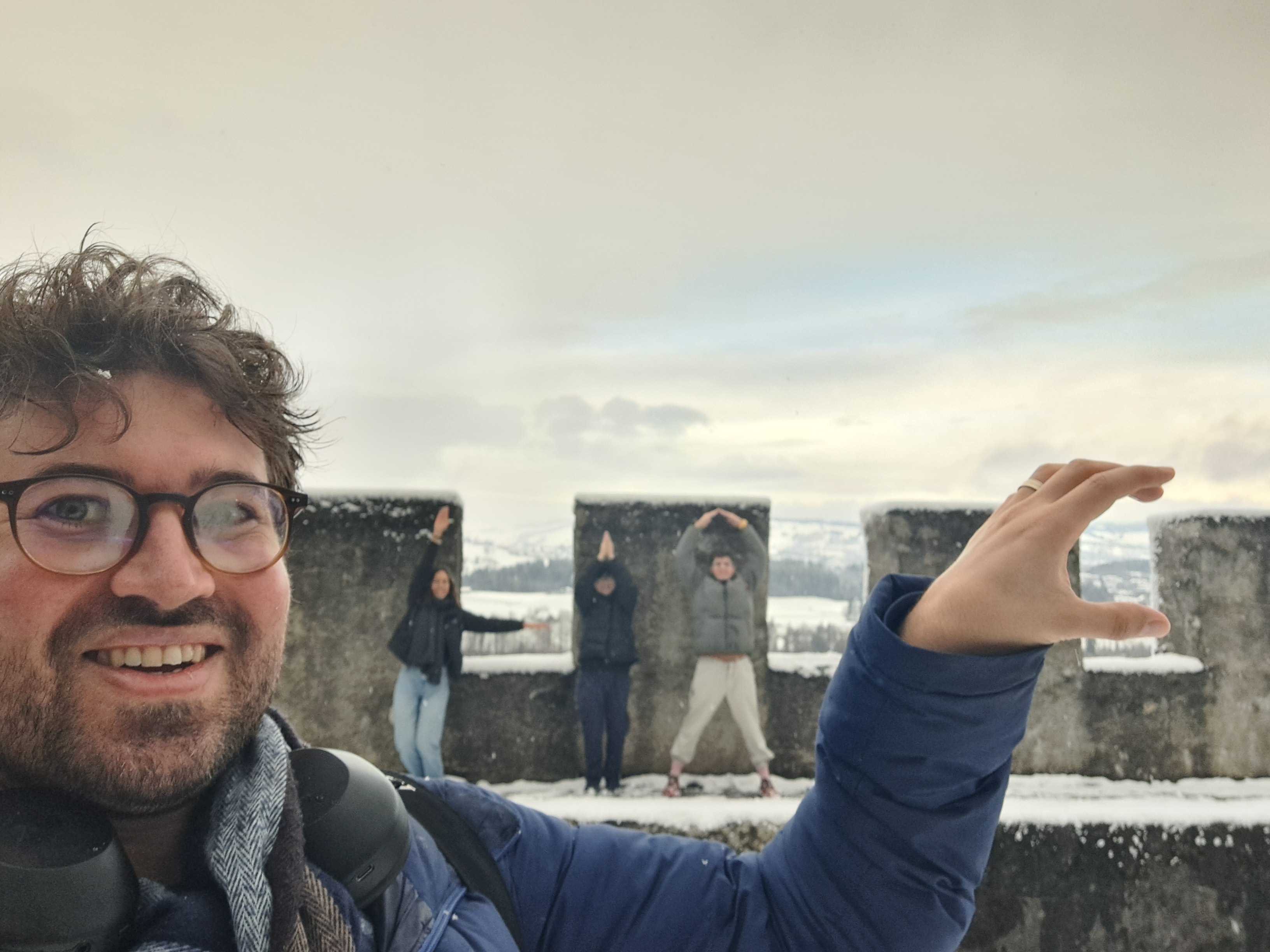
The World Avatar was highly commended at the ceremony.
The CARES research, known as The World Avatar project, is a scalable knowledge platform that improves data interoperability between different sources to help in decision-making. This can be done across different scales for molecular discovery, building management, and urban planning for climate resilience.
The work to improve lab management on a building scale, “Revolutionising Laboratory Automation Across Sectors and Regions with The World Avatar”, was recently shortlisted for the Process Automation and Digitalisation award at the IChemE Global Awards 2025 ceremony held on 20 November in Manchester, UK.
Established in 1994, the IChemE Global Awards are recognised as the world’s most prestigious chemical engineering awards. The Process Automation and Digitalisation category highlights the best project that demonstrates excellence in the application of process automation and/or digitalisation within the chemical and process industries.
The work was jointly submitted with researchers from the University of Cambridge and Computational Modelling Cambridge (CMCL), a spin-off from Prof Markus Kraft, the Founding Director at CARES.

An overview of the intertwined aspects of a chemical research laboratory that are represented within the Digital Lab Framework.
The shortlisted work introduces the Digital Lab Framework for holistic laboratory automation and digitisation powered by The World Avatar. The framework extends beyond core experimental tasks to include infrastructure and peripheral activities. Key aspects include:
- Holistic lab automation: Integrates experimental workflows with infrastructure, utilities, and inventory, ensuring that laboratories function as unified systems.
- Energy and sustainability: Promotes energy and carbon savings by connecting laboratory systems with building management infrastructure, including optimised fume hood operation through platform-agnostic control. Demonstrations in the CARES lab have achieved measurable sustainability gains, earning recognition through awards.
- Simplified operations: Modular, semantically linked interfaces streamline routine and safety-critical tasks such as asset tracking, chemical management, and information retrieval.
- FAIR data and interoperability: Applies semantic web principles to overcome data silos, ensuring laboratory information is accessible, reusable, and expandable across platforms.
This approach points towards laboratories that are more efficient, sustainable and resilient while enabling researchers to focus on advancing science.

The different interfaces via which users can interact with the lab and The World Avatar
Conclusion
This submission highlights CARES’ integral role in developing the Digital Laboratory Framework, powered by The World Avatar, which enables semantic interoperability, automation, and cross-border collaboration between research laboratories.
This work has been demonstrated in both the CARES Laboratory in Singapore and in major industry-led programmes such as the Pharma Innovation Programme Singapore (PIPS), where distributed robotic systems in Cambridge and Singapore collaboratively optimised a pharmaceutical reaction in real time.
The contribution of former CARES Student Dr Simon Rihm and former CARES Director Professor Markus Kraft was instrumental to the development of this transformative approach to laboratory automation. CARES was represented at the award ceremony by Dr Jethro Akroyd, Research Fellow.
This recognition underscores CARES’ commitment to advancing open, interoperable, and sustainable research ecosystems, and to enabling global scientific collaboration through digital technologies.
The series of papers related to this research include:
- A perspective laying out the digital lab framework (DOI: 1016/j.ynexs.2024.100004)
- “Digital Laboratory Manager” (DOI: 1016/j.slast.2024.100135)
- “Digital Research Scientist” (DOI: 1038/s41467-023-44599-9)
- “Digital Lab Facility Manager” (DOI: 1016/j.ynexs.2024.100031)
The CARES segment of the research is funded by the National Research Foundation (NRF), Prime Minister’s Office, Singapore under its Campus for Research Excellence and Technological Enterprise (CREATE) programme.


